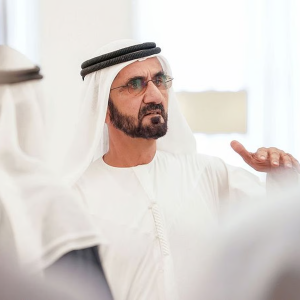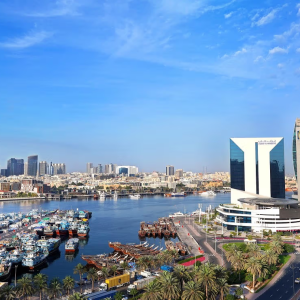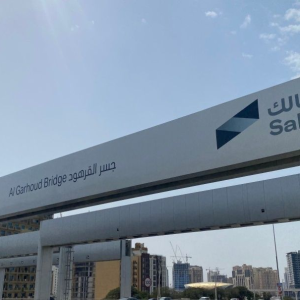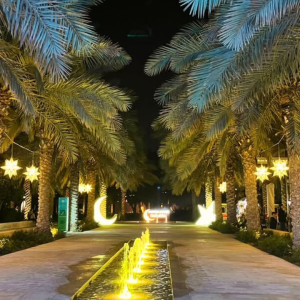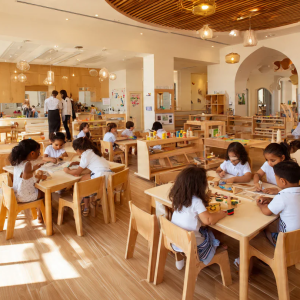Abu Dhabi is set to undergo a transformative shift in its public transport landscape with the introduction of a cutting-edge metro system. Designed to enhance connectivity, reduce traffic congestion, and promote sustainable urban mobility, the new metro project is expected to revolutionize the way residents and visitors travel across the capital. With world-class infrastructure, advanced technology, and eco-friendly initiatives, this ambitious project aligns with the UAE’s long-term vision of smart and sustainable urban development.
A Vision for Seamless Urban Mobility
As Abu Dhabi continues its rapid urban expansion, the need for an efficient, reliable, and environmentally friendly transportation system has become more pressing than ever. The new metro network is a response to the emirate’s growing population, increased demand for public transport, and commitment to reducing carbon emissions.
- Strategic Connectivity: The metro system will seamlessly connect key residential, commercial, and industrial districts, providing a convenient alternative to private vehicles.
- Integrated Transport Network: Designed to complement existing transport services, the metro will integrate with buses, taxis, and ride-sharing platforms to ensure smooth, end-to-end travel.
- Smart and Sustainable Infrastructure: Utilizing AI-driven traffic management, real-time monitoring, and energy-efficient trains, the metro will embody the future of smart urban mobility.
Key Features of Abu Dhabi’s Metro System
The metro project is expected to set new benchmarks in efficiency, safety, and passenger experience. Some of the standout features of the new system include:

- Driverless, Fully Automated Trains: Cutting-edge technology will power driverless trains, ensuring precision, efficiency, and a safer commuting experience.
- High-Speed Connectivity: The metro will significantly reduce travel times, allowing passengers to move swiftly between key areas within the city.
- Eco-Friendly and Energy-Efficient Design: Designed with sustainability in mind, the metro will operate on renewable energy sources, such as solar power, to minimize environmental impact.
- Smart Ticketing System: Contactless payment solutions and digital ticketing will provide a seamless user experience, eliminating long queues and enhancing convenience.
- Accessibility and Inclusivity: Stations and trains will be designed to accommodate all passengers, including individuals with disabilities, ensuring an inclusive transportation system.
- State-of-the-Art Security Measures: Advanced surveillance systems, AI-powered monitoring, and dedicated security personnel will ensure passenger safety at all times.
- Comfort and Modern Design: Metro stations and train interiors will feature cutting-edge design elements, with air-conditioned platforms, ergonomic seating, and digital navigation systems.
Projected Economic and Social Impact
The introduction of the metro system is expected to bring significant economic and social benefits to Abu Dhabi:
- Boost to Real Estate and Infrastructure: Properties located near metro stations are likely to experience an increase in value, encouraging further urban development.
- Reduction in Traffic Congestion: With fewer private cars on the road, the metro will ease traffic congestion, leading to reduced travel times and a more efficient urban transport system.
- Creation of Employment Opportunities: The project will generate thousands of jobs, spanning construction, operations, and maintenance sectors.
- Enhanced Tourism and Business Accessibility: The metro will improve connectivity to major tourist attractions, business districts, and cultural landmarks, benefiting the economy and tourism sector.
- Environmental Sustainability: By reducing dependency on fossil fuel-powered vehicles, the metro will contribute to a cleaner, greener Abu Dhabi.
- Cost Savings for Commuters: With affordable fares and monthly passes, residents will enjoy a more budget-friendly transport option compared to private vehicles.
- Support for Economic Diversification: As part of Abu Dhabi’s long-term strategy, the metro system will enhance the emirate’s appeal to investors and businesses, strengthening economic diversification.
Timelines and Future Expansion Plans
The metro system is being developed in multiple phases to ensure a structured and efficient rollout. The first phase is expected to cover key locations, including Abu Dhabi International Airport, downtown districts, and major residential areas. Future expansion plans aim to extend the network further into suburban regions and neighboring emirates, enhancing inter-city connectivity across the UAE.

- Phase 1 (Initial Rollout): Covering high-density areas, major transport hubs, and business districts to ensure immediate impact.
- Phase 2 (Network Expansion): Extending coverage to suburban areas and linking with other transport modes such as high-speed rail and regional bus services.
- Phase 3 (Inter-Emirate Connectivity): Developing metro links to Dubai, Sharjah, and other emirates, creating a seamless transport network across the UAE.
Challenges and Solutions
Despite the ambitious scope of the metro project, several challenges must be addressed to ensure its success:
- Infrastructure Development: Constructing a metro system in a rapidly growing city requires careful urban planning and minimal disruption to existing transport networks. Advanced construction techniques and phased rollouts will mitigate this challenge.
- Public Adoption and Awareness: Encouraging residents to shift from private vehicles to public transport requires extensive awareness campaigns and incentives such as subsidized fares and promotional discounts.
- Integration with Existing Transport Services: To ensure seamless mobility, the metro must be well-integrated with buses, taxis, and ride-sharing services. Smart transport hubs and unified ticketing systems will facilitate this integration.
- Funding and Investment: A project of this scale requires significant financial investment. Abu Dhabi’s leadership is exploring public-private partnerships (PPPs) and foreign investments to secure sustainable funding for the metro’s construction and operation.
Future Prospects and Long-Term Vision
With its focus on innovation, sustainability, and smart mobility, Abu Dhabi’s new metro system is set to redefine public transport in the capital. The project is expected to transform the emirate into a global leader in urban mobility, setting an example for other cities worldwide.
- Smart City Integration: The metro will be a key component of Abu Dhabi’s broader smart city initiatives, incorporating AI, IoT, and big data analytics for real-time optimization.
- Green Mobility Initiatives: In line with the UAE’s sustainability goals, the metro will prioritize energy efficiency and eco-friendly operations.
- International Recognition: Abu Dhabi’s metro project is expected to attract global attention as a model for modern, sustainable transport infrastructure.
As the project progresses, residents and visitors alike can look forward to a modern, efficient, and environmentally responsible way to navigate the city. The metro will not only redefine urban mobility in Abu Dhabi but also set a new benchmark for sustainable transport solutions in the region and beyond.
Do follow Uae stories for more Updates




